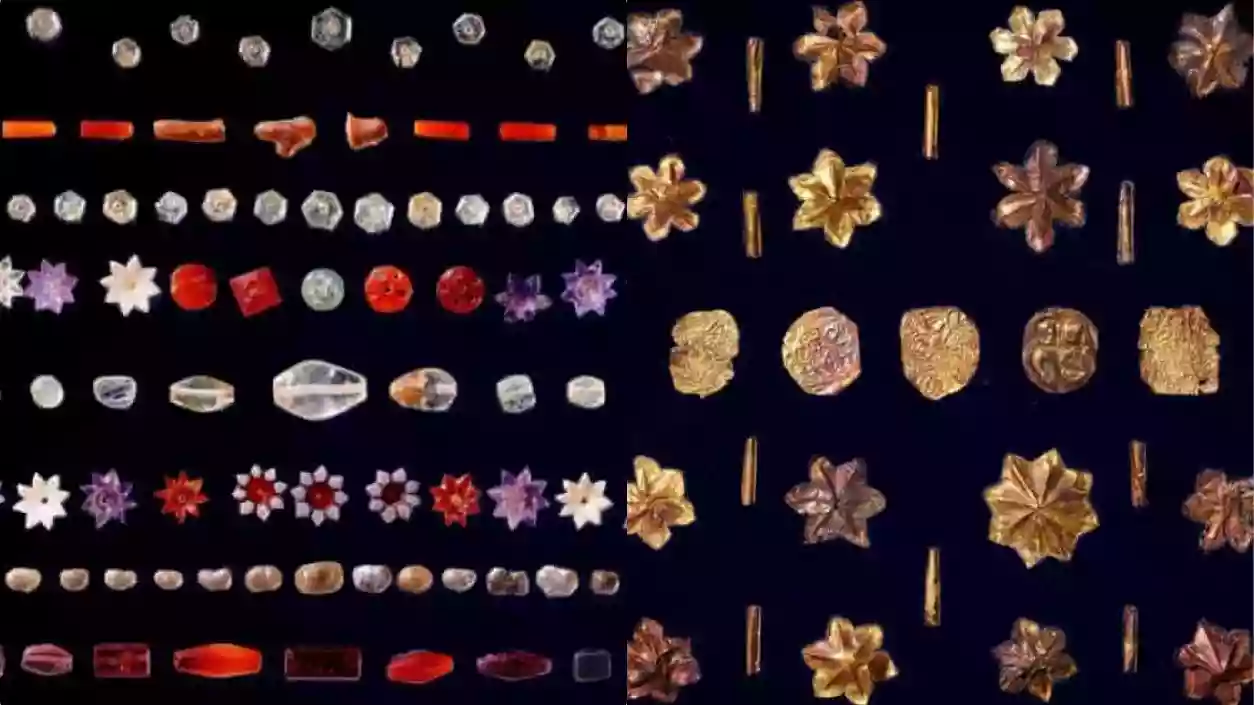Protests erupt outside Kasba Police station as 3 arrested in alleged Kolkata college gang rape
.gif)
.gif)

India’s Ministry of Culture has taken decisive legal action to stop the upcoming auction of Buddha relics by Sotheby’s Hong Kong. The auction, scheduled for May 7, features items including bone fragments and jewels linked to Lord Buddha, which were excavated in 1898 from the Piprahwa Stupa in Uttar Pradesh. These relics, including pearls, rubies, sapphires, amethysts, and gold, are believed to be associated with Buddha's birthplace, Kapilavastu. The auction house has estimated their value at around HK$100 million (approximately ₹107 crore).
The Ministry of Culture issued a legal notice to Sotheby’s, emphasizing that the sale violates Indian law, international conventions, and the sanctity of Buddhist heritage. The relics are classified as ‘AA’ antiquities under the Antiquities and Art Treasures Act of 1972, which prohibits the sale or export of such artifacts. While most of the relics were transferred to the Indian Museum in Kolkata in 1899, a portion was retained by the family of British excavator William Claxton Peppé. These items, which were labeled as "duplicate jewels," have now been listed for auction by Peppé’s descendants.
India’s Archaeological Survey of India (ASI) has also taken steps to request intervention from Hong Kong authorities. The Ministry of Culture directed the ASI to engage with the Consulate General of India in Hong Kong, urging them to intervene and prevent the sale. In addition, the Financial Investigation Unit (FIU) has been tasked with collaborating with Hong Kong authorities to enforce international laws on cultural property, highlighting the illegal nature of the auction.
The legal notice also outlines India’s position that the relics are "inalienable religious and cultural heritage" and that their sale is a violation of ethical norms. It emphasizes that the relics belong to the Buddha, the Sakya clan, and India, where the stupa stands. The Ministry of Culture further stated that the relics should not be treated as commodities for the art market, referencing ethical concerns and precedents such as the return of the Sanchi Stupa relics from the UK and the ongoing repatriation of Benin Bronzes to Nigeria.
Despite these efforts, Chris Peppé, the great-grandson of William Claxton Peppé, defended the auction, stating that his family had previously attempted to donate the items to temples and museums but faced obstacles. He argued that the auction was the "fairest and most transparent" way to transfer the relics to Buddhist communities. However, the Indian government remains firm in its demand for the immediate cessation of the auction and the return of the relics to India.